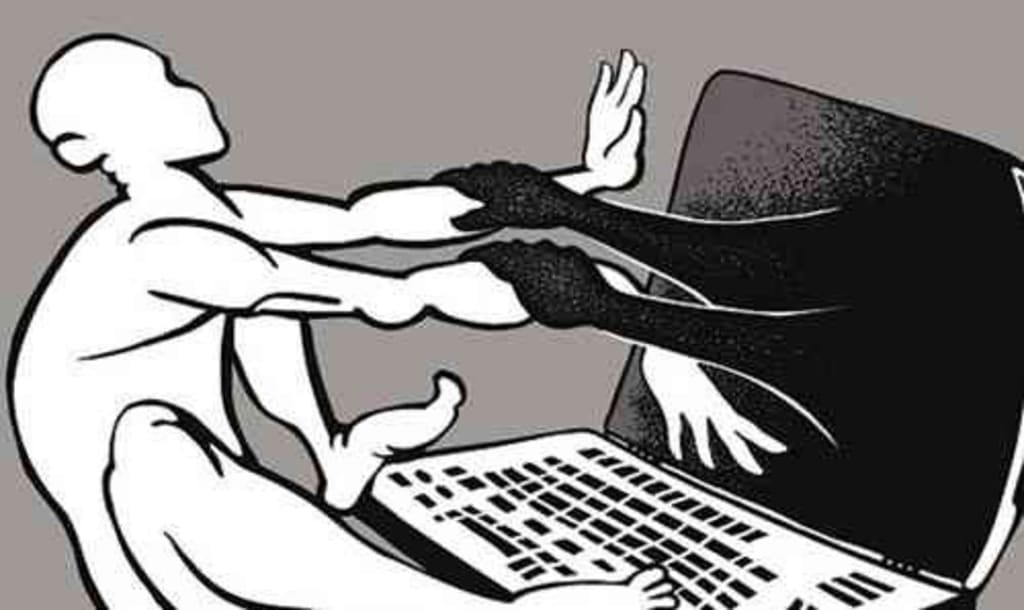The Dark Side of Social Media That No One Will Tell You
The Hidden Dangers of Social Media: The Negative Impact on Mental Health and Well-being

The way people talk and connect with each other has changed a lot since social media became so popular. It has become an important part of our daily lives and has made it possible for us to connect with people in different parts of the world. On the other hand, one component of social media that is less favorable is usually overlooked, and that is its dark side. In this essay, we are going to examine the negative sides of social networking that no one will ever warn you about. These are the aspects that people will never tell you about.
Cyberbullying
One of the most serious issues that may arise on social media platforms is that of online bullying, sometimes known as cyberbullying. Cyberbullying is a term that refers to the act of torturing or harassing another person via the internet. The act of cyberbullying can take many different forms, including the publication of insulting statements or humiliating pictures, the sharing of embarrassing photographs, or the spreading of rumors. This particular sort of bullying can have serious ramifications, including the introduction of hopelessness and anxiety and even the determination to take one’s own life.
Adults are equally prone to being targets of cyberbullying as teenagers are. Cyberbullying may harm people of any age, not just adolescents. Individuals may now more readily disguise their identities behind anonymous profiles on social media sites, making it more difficult to hold them accountable for the actions they take part in. This makes it more difficult to hold people accountable for the activities they take part in.
Addiction
Most people don’t think about another possible downside of social media platforms: the higher risk of becoming addicted to using them. Social media platforms are made to be addictive on purpose, and the companies that run them use a wide range of strategies to keep people using them. For example, notifications are designed with the purpose of making users feel as though they need to check their phones on a frequent basis, even when they are in the middle of completing some other work. This is done in an effort to increase the frequency with which users look at their devices.
Social networking site addiction has been linked to a number of bad things, like less work getting done, anxiety, and depression. Even though a lot of people are aware that spending an inordinate amount of time on social media is bad for them, many still struggle to disconnect from these platforms despite the fact that they know it’s bad for them.
Fake news and information that has been manipulated to be deceptive
Because social media sites are becoming more popular, it is now much easier to spread false information and fake news. Social media platforms are made to show the content that gets the most attention, regardless of whether or not the content is true. This is done regardless of whether or not the information is accurate. As a direct consequence of this, the propagation of conspiracy theories, propaganda, and a variety of other forms of deception have all increased in frequency.
In recent years, the spread of fake news and misleading information has become so bad that the World Health Organization (WHO) has called it a “disinfodemic.” For example, many people have decided not to get vaccinated against COVID-19 because there has been a lot of wrong information about the virus. This has helped the virus spread even more. This is one factor that has contributed to the spread of the virus.
Concerns About Personal Space
People who use social networking sites are open to having a lot of information about them collected. This could include information about their preferences, interests, and behaviors. This data may be used for targeted advertising. This information is routinely used to target users with advertisements; however, it also has the potential of being employed for more malevolent purposes and therefore should be treated with caution. In recent years, there have been a substantial number of examples of data breaches as well as the unlawful use of data by organizations that are involved in social media.
Concerns about privacy have become very important, and more and more people are learning about the risks of sharing personal information on social networking sites like Facebook and Twitter. These platforms allow users to connect with others and share information online. Yet, because many social media platforms require users to provide personal information in order to use the service, it may be difficult to retain a high level of privacy while using these services. This is because of the nature of the information that users are required to disclose.
Reverberant Places and Areas
People have also said that social media can cause echo chambers to form. An echo chamber is a situation in which users are only shown content that further supports the beliefs and viewpoints they already hold. This might lead to individuals’ thoughts becoming monotonous, which can prevent them from considering alternate points of view.
When it comes to political discourse, echo chambers may be particularly dangerous due to the fact that they have the potential to lead to more division in society. When people are only exposed to information that helps to affirm the beliefs they already have, it makes it far more difficult to have a constructive discussion about important matters.
In conclusion, the bad things about social media do exist, but most people don’t pay much attention to them. The use of social media platforms may give rise to a number of issues, such as cyberbullying, addiction, the proliferation of fake news, concerns over users’ privacy, and echo chambers. It is absolutely necessary to have an awareness of these issues and to take precautions in order to protect oneself and the people who are important to one. This may require you to set boundaries for the amount of time you spend on social media, exercise caution with the information you share on the internet, and be conscious of the information that you take in. By doing these things, you’ll not only be able to use social media in a way that’s good for you, but you’ll also help lessen the bad things that can happen when people use these platforms.





Comments
There are no comments for this story
Be the first to respond and start the conversation.